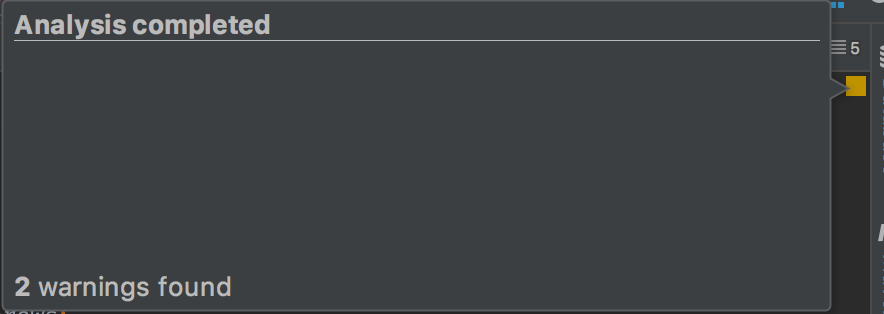I’m in the habit of leaving classes cleaner than they were before I got there. CMD+ALT+O (optimize imports) and CMD+ALT+L (reformat code) have become a muscle memory by now. I will spend my time removing unused properties, deleting dead code, removing deprecations or duplications. One of my all-time favorites is rewriting tests to make them clean and readable. I do this as part of any day to day tasks, no matter how small or insignificant. It is satisfying to know you leave your code in a better state than before (and my OCD is fed and happy).
One of the best tools I use to achieve this task is none other than the good old IntelliJ IDEA. The highlights to unused parameters, typos, accessibility level of a class or method, a parameter that is always called with the same value etc. You know what I’m talking about, that nagging little yellow square you never pay attention to or deliberately ignore because you’re always working on some important, time-sensitive feature. You “never” have time to quickly sweep and ‘clean-up’ the class you’re working on.

- “That nagging little square”
My team at work is divided into three groups:
- The people who use a several-major-versions-old IntelliJ (reciting the age-old mantra — “if it ain’t broke, don’t fix it”)
- A person who uses the latest stable version of IntelliJ
- And me, always making sure to use the latest EAP.
The first group of people doesn’t see some of the suggestions IntelliJ gives me. The first example which pops to mind is the support of lambda expressions we got with Java 8. IntelliJ is very helpful in highlighting the code that can be converted to a shorter lambda which makes the code shorter, cleaner and quite frankly more readable (which is a matter of personal taste and habit). Today I got to a class which I have never seen before to make a tiny change. It’s a class in a service I’m not usually working on, so I hadn’t had the chance to make my usual OCD powered sweep and clean up. I proceeded to change one global parameter to private accessibility from the public and added a ‘final’ keyword to another parameter. Happy and satisfied, my OCD let me commit this minor change.
Imagine how surprised I was to have my OCD rub my nose in a piece of code I entirely missed:

IntelliJ just told me that it found a bug:

After changing the code and calling the ‘putAll’ method with ‘innerMap’:

IntelliJ even added a bonus of highlighting another optimization I could do — “Lambda can be replaced with method reference.” and now the code looks like so:

Now, I know what you’re thinking. It’s something of the sort of: “where were the tests?” or “tests would have protected him from making this stupid mistake” (I can hear your scolding tone in my head right now thank you very much), it’s a valid point, but it’s not the point I’m trying to make and it’s out of the scope of this post. What I’m trying to tell you is — trust your IntelliJ!
